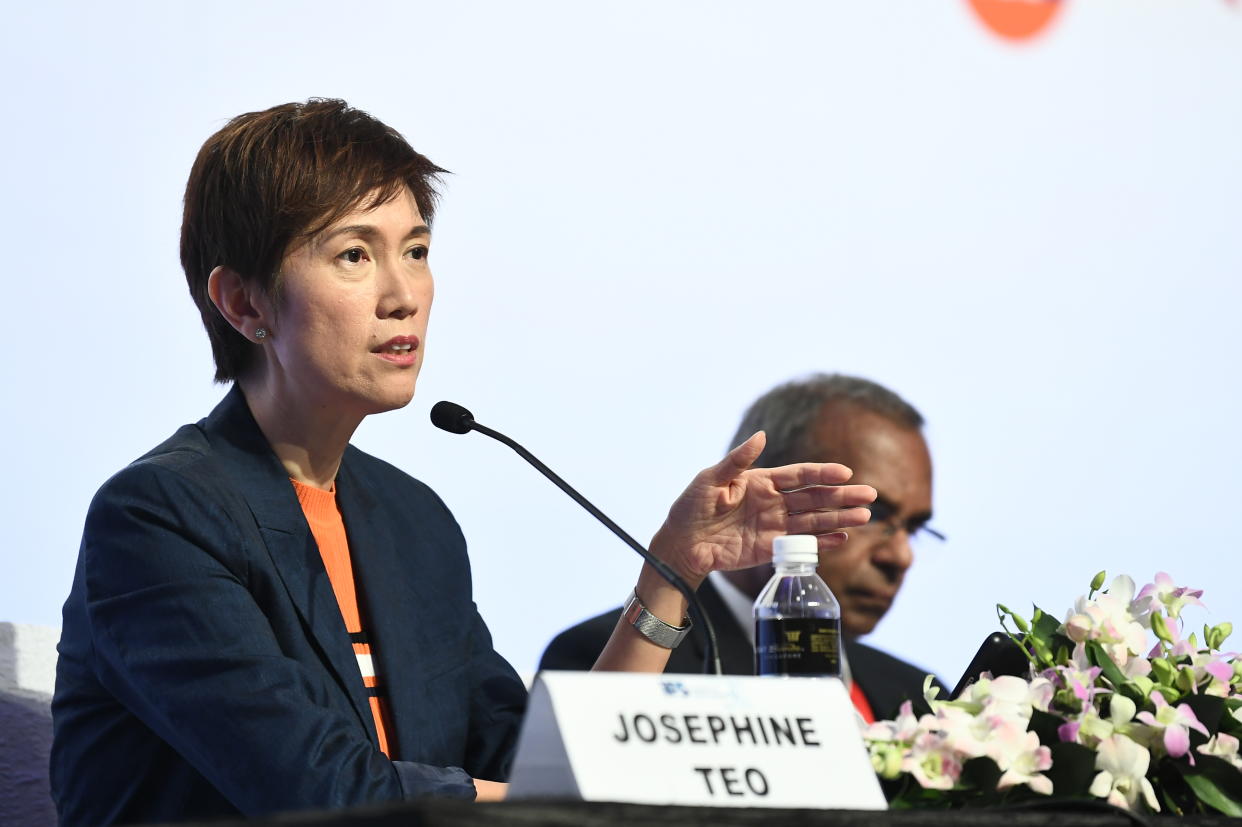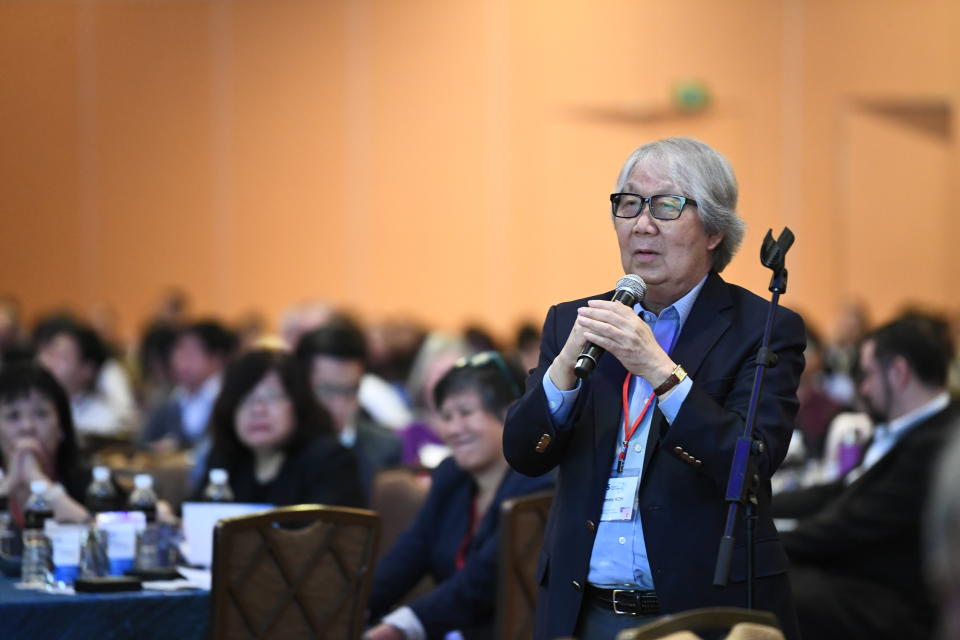Not yet practical to implement minimum wage in Singapore: Josephine Teo

It is not yet practical to implement minimum wage across the board in Singapore, said Minister for Manpower Josephine Teo during a panel discussion at the Institute of Policy Studies 30th Anniversary conference at Marina Bay Sands on Friday (26 October).
In her opening remarks, Teo had argued that implementing minimum wage would force employers to pay more than the market rate for some types of labour. As a result, it would have the same effect as a tax on employment, with the lowest-waged workers attracting the highest “tax”, she added.
“Not all employers would want to employ workers at this rate, which could lead to lower levels of employment,” she argued. “To secure a job, some workers may even choose to work illegally below the minimum wage, which makes them even more vulnerable.”
Teo said that the Singapore government chooses to supplement incomes through the Workfare Income Supplement Scheme (WIS), which is “a permanent feature of our social security system”. The scheme encourages low-wage workers to work regularly by providing support to the bottom 20 per cent of workers.
Eligible workers receive 60 per cent of WIS as CPF top-ups to build up their retirement savings and 40 per cent of WIS as cash supplements to help them meet their daily needs. The WIS payouts can comprise up to an extra 30 per cent of the worker’s monthly income, achieving the same uplift as a minimum wage.
“But there’s a crucial difference – the cost of WIS is borne by the government, with no risk of inducing unemployment or illegal employment of such workers,” she explained. “Minimum wage, on the other hand, will be borne by the employers.”
‘A ladder’
While income supplements help, Teo believes that a better solution lies in growing wages sustainably, and one method is through the Progressive Wage Model (PWM) developed by the tripartite partners.
“Unlike minimum wage which specifies a floor, PWM specifies a ladder. In fact, there are four inter-linked ladders for skills, jobs, productivity and wages. A worker can be paid a higher wage on the basis of his improved skills, enlarged job or heightened productivity,” she said.
“The rungs of the ladder provide an upward path, so the worker is not stuck earning minimum wages.”

The minimum wage topic drew a response from Ambassador-at-large Tommy Koh during the question-and-answer session. He cited examples of places which implemented minimum wages such as Hong Kong, Japan and South Korea, and that these economies lifted many people out of poverty and enabled them to “live in dignity”. He also said that these economies did not encounter scenarios of illegal employment nor unemployment.
In her response, Teo countered by citing an anecdote which she heard from a Hong Kong businesswoman shortly after minimum wages were implemented. An elderly security guard in her condominium was replaced by a much younger man, and he eventually had to move out of Hong Kong to live his retirement life in Southern China, where the cost of living is presumably cheaper.
“To what extent is he living his retirement years in dignity?” she asked.
Olive versus pear
Koh also drew a lively response when he referred to an analogy made by former Prime Minister Lee Kuan Yew to illustrate the perception of growing social and economic inequality.
“Mr Lee said, ‘I want to build a Singapore which resembles an olive — very few very rich, very poor people, and a very large middle income.’ I recently plotted the income profile of Singapore. It does not look like an olive. It looks like a pear — a large number of people at the bottom,” Koh said.
“How did the olive become a pear? And if the pear is not what we want, what can we do about it?” he asked.
Nominated MP Walter Theseira, who was also on the panel, cautioned against artificial redistribution of income in order to move Singapore’s income profile from a pear to an olive.
“With any straight taxation or redistribution policies, you can take any arbitrary pear-shape income distribution and massage it into an olive,” he explained. “The question we have to ask is that, after the massaging is done, do you end up with a lot less fruit than what you started off with?”
Teo also responded by saying that the most practical solution in addressing social inequality is to convince Singaporeans to not equate economic worth with moral worth.
“We must be able to look each other in the eye and look past the markers of social success. Treat each other with respect and consideration,” she said.
Other Singapore stories:
Singapore has to keep the ‘escalator’ of social mobility moving up: DPM Tharman
People care, so they debate on hawker centre model: NHB
Workers’ Party MPs raise nearly $500,000 to fight town council lawsuits



